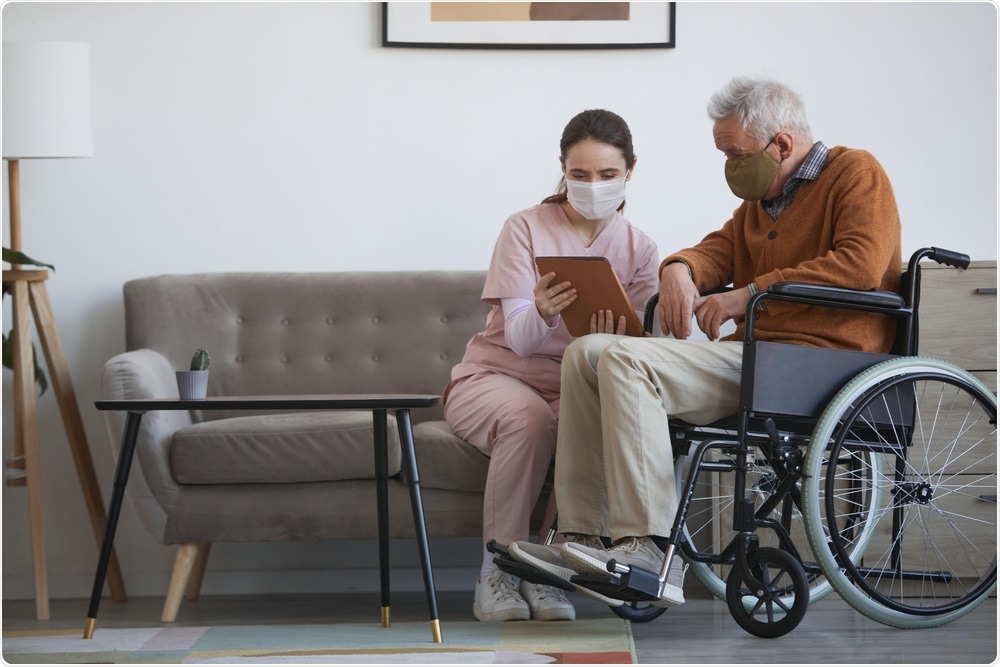Care homes worldwide were severely impacted by the coronavirus disease 2019 (COVID-19) pandemic, with up to 25% fatality rates reported among the oldest residents. The impact on the care home staff, although younger and healthier than residents, was disproportionately high. In fact, this sector of the healthcare workforce experienced one of the highest severe acute respiratory syndrome coronavirus 2 (SARS-CoV-2) infections and fatality rates among all occupations. Consequently, care home staff was prioritized to receive COVID-19 vaccination in many countries.
Understanding the immune responses and duration of protection after infection in care home residents and staff is crucial for designing an effective vaccination strategy to protect this high-risk group. This has become more important and urgent, as highly transmissible Alpha and Delta variants have now become the dominant circulating strains of SARS-CoV-2 in the United Kingdom, with other circulating variants such as the Beta and Gamma also associated with the pronounced antigenic variation.
 Study: Reinfection with new variants of SARS-CoV-2 after natural infection: a prospective observational cohort in 13 care homes in England. Image Credit: SeventyFour / Shutterstock.com
Study: Reinfection with new variants of SARS-CoV-2 after natural infection: a prospective observational cohort in 13 care homes in England. Image Credit: SeventyFour / Shutterstock.com
About the study
In a review recently published in The Lancet Healthy Longevity, a team of researchers performed an observational cohort study in 13 care homes in Greater London, England. They surveyed incidences of SARS-CoV-2 infection in both care home staff and residents early in the pandemic.
Regular nose and throat screening for SARS-CoV-2 was performed for all staff and residents using reverse transcription-polymerase chain reaction (RT-PCR) assay, with ad hoc testing of symptomatic individuals. The investigation primarily detected SARS-CoV-2 RT-PCR positive reinfection cases in previously infected individuals using serological testing or diagnostic RT-PCR results. The researchers used Poisson regression and Cox proportional hazards models to estimate the protective effect of previous exposure.
From January 2021 onwards, antigen lateral flow devices were also used for viral screening; however, RT-PCR test confirmation was mandatory in the event of a positive test report. During the longitudinal follow-up, SARS-CoV-2 spike, nucleoprotein, and neutralizing antibodies were assessed at multiple time points.
Study findings
While the rate of reinfection among residents and staff was insignificant, even after the emergence of the Alpha variant, in reinfection cases, infected individuals either never had an antibody response, had a poor antibody response, or sero-reverted after primary infection and before reinfection. The protection conferred from the previous infection was not significantly different between older residents and younger staff, as estimated using multiple statistical methods and fitting models for residents and staff. Cases of confirmed and probable reinfections were equally represented in younger staff and older residents, thereby indicating that age does not determine susceptibility to reinfection.
In vaccinated residents, reinfections did not occur in individuals under investigation for 46 days after the first vaccine dose was given. Although vaccination campaigns for residents started in December 2020, community infection rates and outbreaks due to the Alpha variant in these homes were still high.
After primary infection, no differences in seropositivity rate, antibody concentration, or neutralizing antibody titers were observed between residents and staff for the first few months, irrespective of their symptom status during this time or gender. The researchers extended these observations for up to nine months.
Before the emergence of the Alpha variant in care homes, previous infection offered 96.2% protection against reinfection with circulating strains. As per this study’s estimates, with more cases and longer follow-up than previous studies, the previous infection remained highly protective against reinfection, even against the Alpha variant.
After the first wave of SARS-CoV-2 infections, the largest outbreak of COVID-19 cases in care homes occurred only in those individuals who had the lowest seroprevalence. Despite multiple separate introductions of the virus into care homes, SARS-CoV-2 transmission rates remained low due to the implementation of extensive infection controls and acquired immunity.
Conclusions
The current study reports that the vaccination program in the U.K. has been highly successful in the containment of COVID-19-related hospital admissions and deaths among vaccinated individuals, including older adults. The study findings also indicate that natural infection with SARS-CoV-2 protects individuals of all age groups against antigenically similar variants, including the Alpha variant, for up to 9 months.
The findings also recognize the role of cellular immunity in fighting SARS-CoV-2 infections and show a boost of antibody response after reinfection, thus indicating a strong correlation between susceptibility to infection and neutralizing antibody titers. Taken together, these findings suggest that maintaining a high concentration of neutralizing antibodies following vaccination will be important for overall protection from emerging variants across age groups.
While the study results suggest that prior infection and vaccination confers protection against reinfection by SARS-CoV-2 variants, they fail to produce enough evidence for the same. Hence, the researchers recommend conducting further studies to establish the scale of protection provided by vaccines and previous infection against new variants and whether neutralizing antibody titers can serve as proxy correlates of protection.
Journal reference:
- Jeffrey-Smith, A., Rowlnd, T. A. J., Patel, M., et al. (2021). Reinfection with new variants of SARS-CoV-2 after natural infection: a prospective observational cohort in 13 care homes in England. The Lancet Health Longevity; e811-819. doi:10.1016/S2666-7568(21)00253-1.